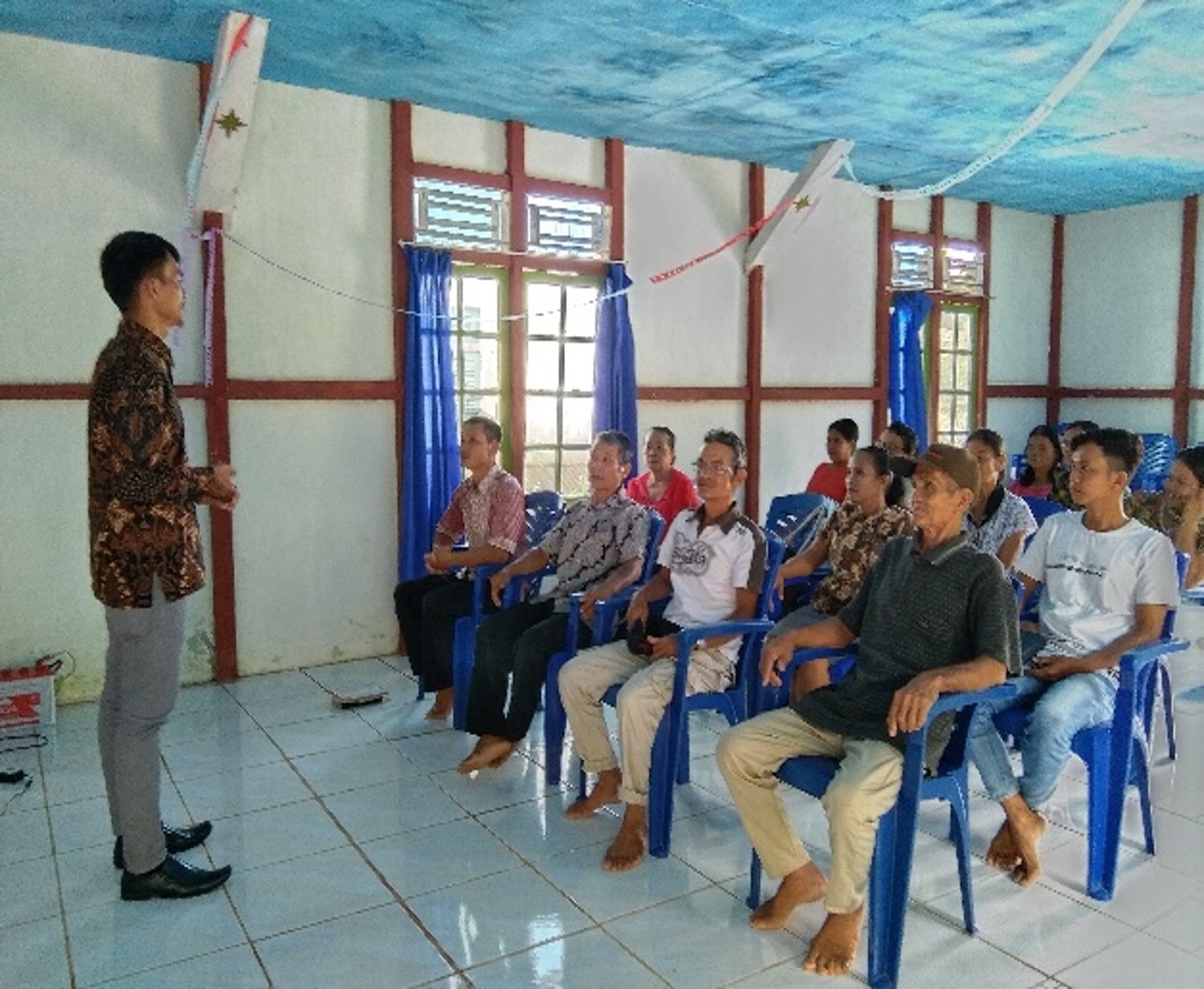EDUKASI PEDAGOGI TENTANG URGENSI PENDIDIKAN KELUARGA BAGI ORANG TUA DI DESA TANJUNG BERINGIN
DOI:
https://doi.org/10.47457/jps.v4i1.359Keywords:
children, parents, responsibility, Tanjung Beringin VillageAbstract
Tanjung Beringin Village is one of the villages in Sungai Laur District, Ketapang Regency, West Kalimantan. Here is where the community service implementation activities are held. Based on the results of observations and surveys conducted, parents in Tanjung Beringin Village still lack understanding and knowledge that instilling Christian values and shaping their children's spirituality is a responsibility that must be prioritized. As a result of the problem, the parents take a less favourable stance and action for the child, namely transferring this noble responsibility to the church (Sunday school) and school (religious teacher). As a form of responsibility and concern, implementing Community Service is present as an answer to these needs. The goal is that parents in Tanjung Beringin Village can become responsible individuals in shaping their family members into a generation that fears God and has noble morals. Implementing this Community Service uses observation, survey, and discussion methods and is supported by literature studies. As for the results obtained from this effort, parents in Tanjung Beringin Village already understand and know how to be responsible individuals in educating their children in truth through family education.
Downloads
References
Akhyadi, Ade Sadikin Akhyadi, Dinno Mulyono. (2018). Program Parenting Dalam Meningkatkan Kualitas Pendidikan Keluarga. Jurnal Pengabdian Kepada Masyarakat (Abdimas) IKIP Siliwangi, Vol. 1(No. 1), 1–8.
Arifianto, Yonatan Alex. (2020). Pentingnya Pendidikan Kristen Dalam Membangun Kerohanian Keluarga di Masa Pandemi Covid-19. REGULA FIDEI; Jurnal Pendidikan Agama Kristen, Vol. 5(No. 2), 94–106.
Boiliu, Fredik Melkias. (2020). Pembelajaran Pendidikan Kristen Dalam Keluarga di Era Digital. TE DEUM; Jurnal Teologi Dan Pengembangan Pelayanan, Vol. 10(No. 1), 107–119.
Gulo, Restu. (2022). Edukasi Pertumbuhan Kerohania Kaum Bapak DI Gereja Kristen SETIA Indonesia (GKSI) “Jemaat Gloria” Baning. Jurnal PkM SETIADHARMA, Vol. 3(No. 1), 1–10.
Gulo, Yenti Krisdayanti, Nervin Zalukhu, S. N. S. (2022). Sosialisasi Dampak Negatif Gadget Terhadap Kehidupan Rohani Anak Dusun Payok Desa Lamoanak Kecamatan Menjalin. Jurnal PkM SETIADHARMA, Vol. 3(No. 3), 147–156.
Ndruru, Sokhiziduhu. (2019). Pentingnya Pendidikan Agama Kristen Dalam Keluarga Sebagai Sentral Belajar yang Bermisi. Voice of HAMI; Jurnal Teologi Dan Pendidikan Agama Kristen, Vol. 2(No. 1), 32–44.
Nono, Marten Malo. (2021). Pendidikan Keluarga Kristen dalam Mencegah Kenakalan Remaja. Angelion; Jurnal Teologi Dan Pendidikan Kristen, 2(1), 65–75.
Sunarko, Adreas Sese. (2021). Fungsi Keluarga Dalam Perspektif Alkitab Sebagai Basis Pendidikan Agama Kristen. JUPAK; Jurnal Pendidikan Agama Kristen, Vol. 1(No. 2), 92–107.
Tari, Ezra Dan Talizaro Tafonao. (2019). Pendidikan Anak Dalam Keluarga Berdasarkan Kolose 3:21. KURIOS; Jurnal Teologi Dan Pendidikan Agama Kristen, Vol.5(No.1), 24–35.
Wiley, John and Sons. (2016). Introduction to Qualitative Research Methdos; A Guidebook and Resource. New Jersey.
Zega, Yunardi Kristian. (2021). Pendidikan Agama Kristen dalam Keluarga: Upaya membangun Spritualitas Remaja Generasi Z. LUXNOS; Jurnal Sekolah Tinggi Teologi Pelita Dunia, Vol. 7(No. 1), 105–11.

Downloads
Published
How to Cite
Issue
Section
License
Copyright (c) 2023 Jurnal PKM Setiadharma

This work is licensed under a Creative Commons Attribution-ShareAlike 4.0 International License.
Authors who publish with this journal agree to the following terms:
- Authors retain copyright and grant the journal right of first publication with the work simultaneously licensed under a Creative Commons Attribution License that allows others to share the work with an acknowledgement of the work's authorship and initial publication in this journal.
- Authors are able to enter into separate, additional contractual arrangements for the non-exclusive distribution of the journal's published version of the work (e.g., post it to an institutional repository or publish it in a book), with an acknowledgement of its initial publication in this journal.
- Authors are permitted and encouraged to post their work online (e.g., in institutional repositories or on their website) prior to and during the submission process, as it can lead to productive exchanges, as well as earlier and greater citation of published work (See The Effect of Open Access).











